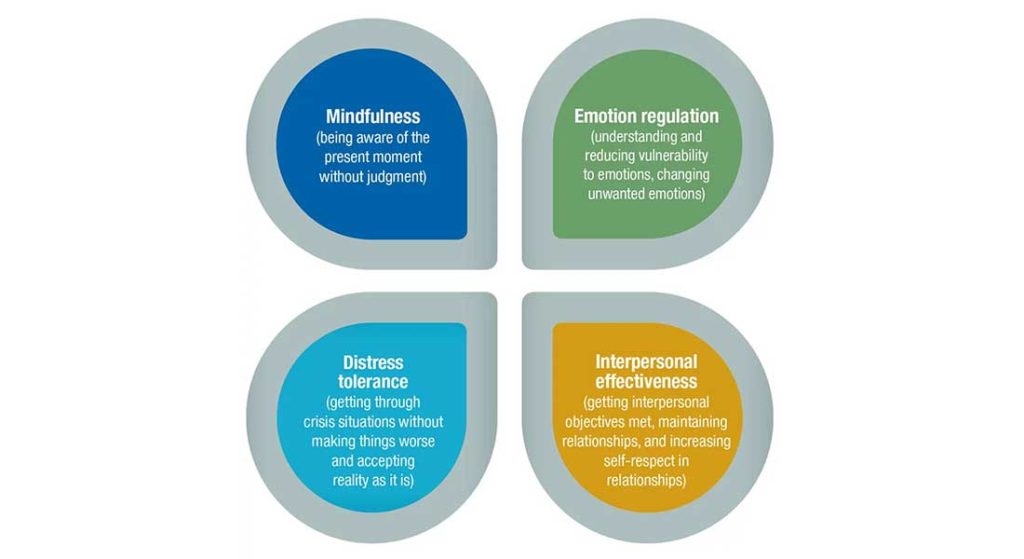DBT Treatment for Adults
We’re not a “one size fits all” program. Each adult client is assigned to one of four specialized recovery communities and a “core group” within that community. Each core group is a primary support system of 10 to 15 clients with similar diagnoses and is led by a specialized counselor. Each client also receives individualized, one-on-one support from a primary counselor and psychiatrist who focus specifically on clients in that recovery community. Clients may transition from one recovery community to another based on goals, clinical presentation, and achievement. Dialectical behavior therapy, or DBT, is one of our recovery communities.
DBT improves emotion regulation and reduces impulsive behaviors
DBT is based on cognitive behavioral therapy (CBT) and is one of the most researched treatments for borderline personality disorder and diagnoses involving emotional disregulation. It has been shown to be significantly effective in reducing suicidal ideation and self-harming behaviors common to those diagnosed with BPD, as well as improving a client’s ability to resist acting impulsively in stressful situations.
The overall goal of DBT is to help clients create a “life worth living.” Clients are encouraged to define what a "life worth living" looks like for them, and it varies from client to client. Clients then work toward addressing problem behaviors that are barriers to accessing that life.
The Skyland Trail 90-Day Program
The 90-day intensive DBT treatment program at Skyland Trail begins with residential treatment or day treatment and addresses stage 1 of DBT therapy, which focuses on attaining foundational skills and capacity to manage suicidal behaviors, therapy-interfering behaviors, major quality-of-life-interfering behaviors, and deficits in behavioral skills.
Once they have learned the shared language and framework of DBT, and can use DBT skills to effectively participate in therapy and supportive social relationships, clients are prepared to continue therapeutic work on an outpatient basis in the community while living independently.
Our intensively trained DBT treatment team meets weekly to discuss complex client cases and to develop comprehensive strategies to help clients progress. Across the organization, our multidisciplinary treatment team, including residential staff members, receive ongoing training on how to support DBT clients.
DBT clients admiting to a residential level of care spend approximately 60 days in residential treatment and then, as their skills improve, step down to day treatment and IOP to complete the 90-day program.
Four Modules of DBT
Clients participating in DBT therapy receive weekly one-on-one counseling sessions with their primary counselor, participate in skills groups, and have access to 24 phone coaching as needed. Clients also complete homework assignments and are asked to apply DBT skills learned in group to real-life experiences.
DBT skills are taught in four modules:
- Emotion Regulation
- Distress Tolerance
- Mindfulness
- Interpersonal Effectiveness

